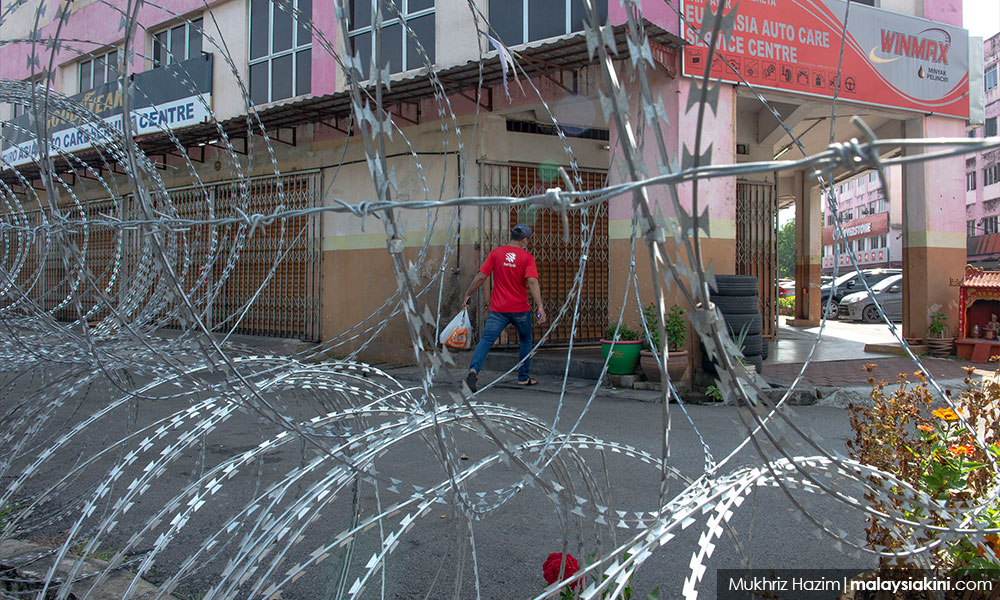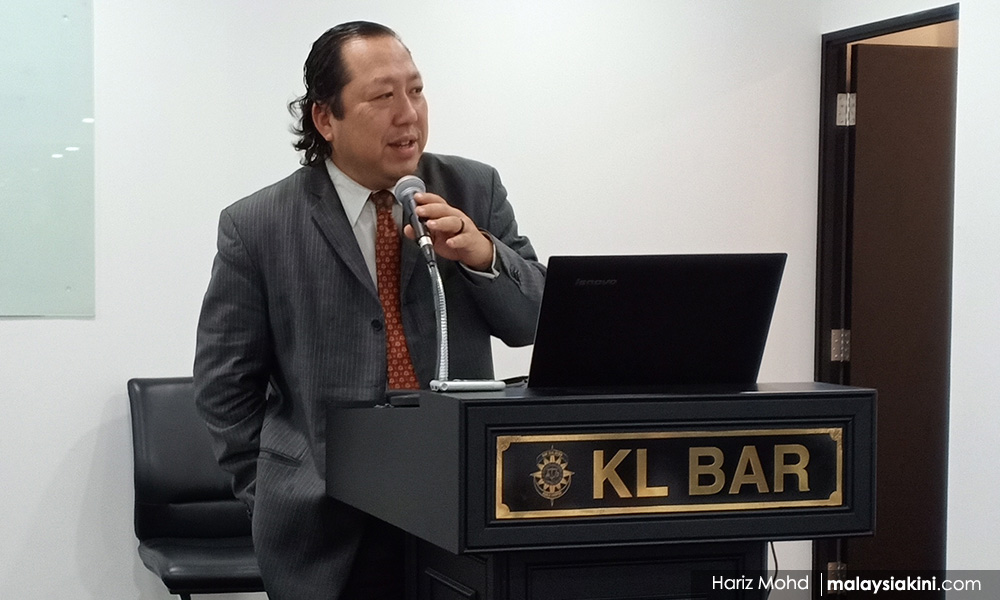Non-governmental organisations (NGOs) have disagreed with Wisma Putra that the human rights situation in the country is improving.
At a virtual press conference today, the Coalition of Malaysian NGOs for the UPR Process (Comango) as well as the CSO Platform for Reform hit out at the Foreign Affairs Ministry, saying human rights in Malaysia is still in a sorry state.
"Malaysia’s candidacy for membership of the United Nations Human Rights Council (UNHRC), if successful, does not represent and should not be seen as a reward for the progress achieved in the promotion and protection of human rights. Human rights in Malaysia is still in a sorry state.
"To say that it is improving would be a misrepresentation of the real situation. The voluntary pledges and commitments by Wisma Putra lack ambition and do not go far enough. They gloss over many inconsistencies, hypocrisies, and contradictions that exist in Malaysia in respect of human rights," said Ryan Chua, a representative of the Comango secretariat.
This is in response to a pledge posted on Wisma Putra's website three months ago, in which Malaysia claimed its record on human rights has improved tremendously in recent years.
Malaysia also pledged to improve its human rights on, among others, gender equality and improving the lives of the people.
Malaysia is seeking a spot on the UNHRC for the 2022-2024 term and is likely to succeed as it is one of five countries in the Asia Pacific region that announced its candidature for the five available places.
The other four countries are Qatar, United Arab Emirates (UAE), India, and Kazakhstan.
While Malaysia committed to three international human rights treaties, Chua said Putrajaya continues to maintain reservations on treaties such as the Convention on the Rights of the Child (CRC), the Convention on the Elimination of All Forms of Discrimination Against Women (Cedaw), and the Convention on the Rights of Persons with Disabilities (CRPD).
"As it stands, Malaysia seems to support racial discrimination, torture, enforced disappearance, and mistreatment of migrant workers because it has steadfastly refused to accede to any of the international human rights treaties on these issues," he said.

He said the National Human Rights Action Plan (NHRAP) produced by the government in 2018 could not address many gaps as it was not a comprehensive plan.
"We are surprised that the government would mention the fact that the NHRAP was a result of Malaysia’s first Universal Periodic Review that took place in 2009. That it took the Malaysian government nine years to produce the NHRAP says a lot about the importance and priority placed on human rights in Malaysia," Chua said.
"The present government’s focus has been to hold on to power as it came through undemocratic means and was swamped by pandemic management.
"Ironically, the management of the country was centred around the proclamation of a state of emergency, the suspension of Parliament, the deferring of elections, and the introduction of emergency ordinances that have criminalised so-called 'fake news'.
"There has also been an increase in investigations and prosecutions in relation to freedom of expression and media freedom," added Chua, who is also the programme director of Pusat Komas.
He also pointed out that the National Unity Policy and National Unity Blueprint 2021-2030 launched by the government failed to address the issue of gender equality and non-discrimination within the national unity framework.
"We intend to maximise the period of Malaysia’s membership of the UNHRC to press our demands for an improvement of the human rights situation in Malaysia," he said.
Comango is the biggest civil society coalition of its kind in the Universal Periodic Review (UPR) process. Comprising over 50 organisations, it engages in the UPR which is a review of the human rights record of all UN member states.
CSO Platform for Reform is a Malaysia-based coalition of 80 civil society organisations (CSOs) focusing on institutional reforms.

Meanwhile, human rights lawyer Andrew Khoo who attended the virtual press conference raised concern that the Covid-19 pandemic is being used by some authorities as camouflage for them to take action against citizens.
He cited the ongoing tussle between durian farmers and the Pahang state government, which saw 19 individuals being detained, including Tras state assemblyperson Chow Yu Hui and the alleged land encroachment involving Orang Asli and Orang Asal in Sarawak and Peninsular Malaysia.
"During this period, the people cannot come out, cannot gather and protest... the Covid-19 (lockdown) has dampened civil society's ability (to protest).
"Maybe this is the consideration taken into account when official action is being taken, knowing it's difficult for society to respond," said Khoo.
He also referred to police action against the recent hoisting of flags and said that public dissent, criticism, and comment are being demonised and criminalised.
Khoo noted while Malaysia was vocal on issues related to Rohingya and Palestinians on the international front, the government was not providing adequate assistance to the Rohingya and Palestinians who are in Malaysia.
"The government could expedite the amendment of the law to address discrimination, but instead it is using emergency power to strengthen itself," he said, adding there is the potential of power abuse when power is concentrated in the hands of a few in government. - Mkini




No comments:
Post a Comment
Note: Only a member of this blog may post a comment.